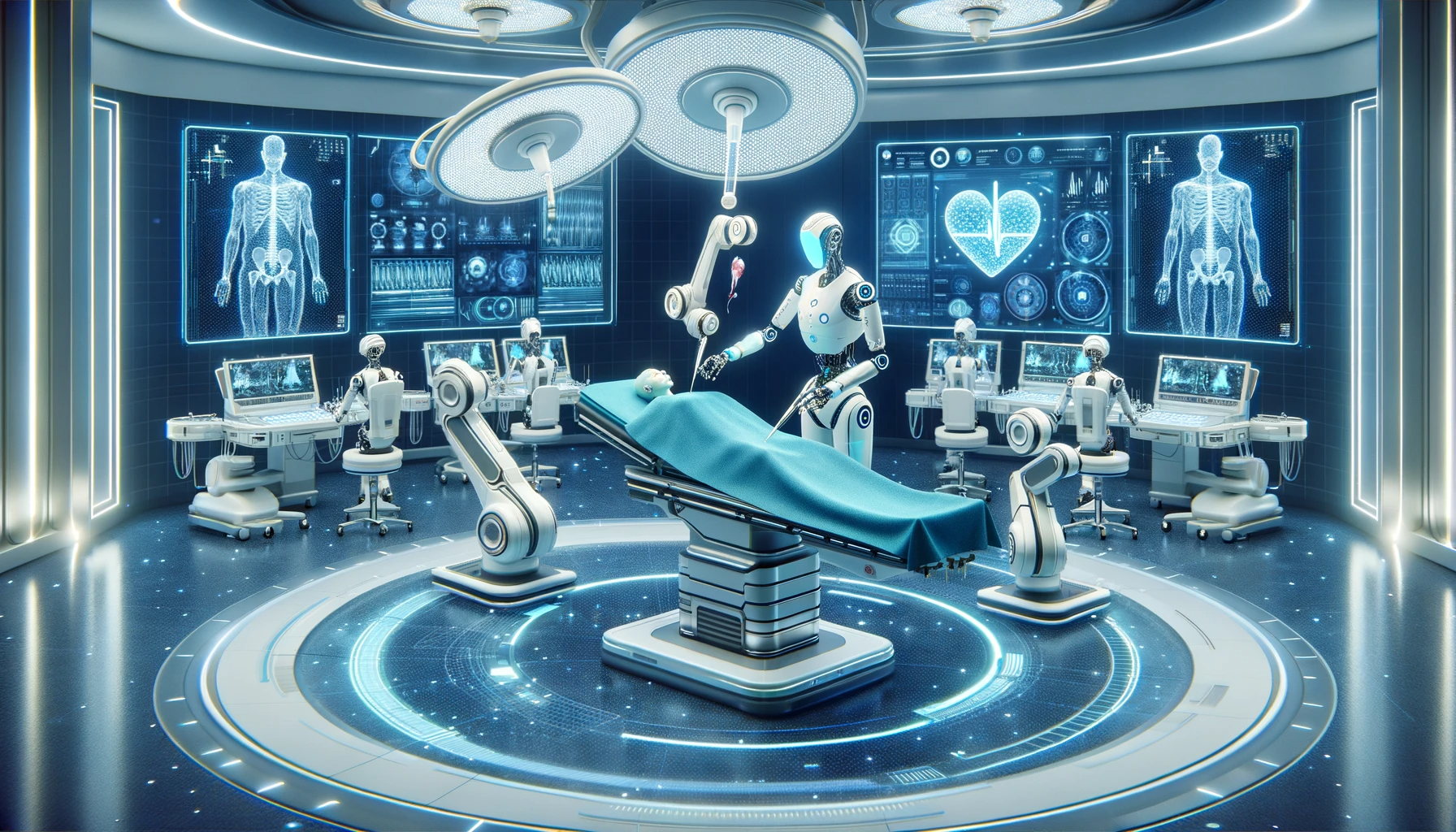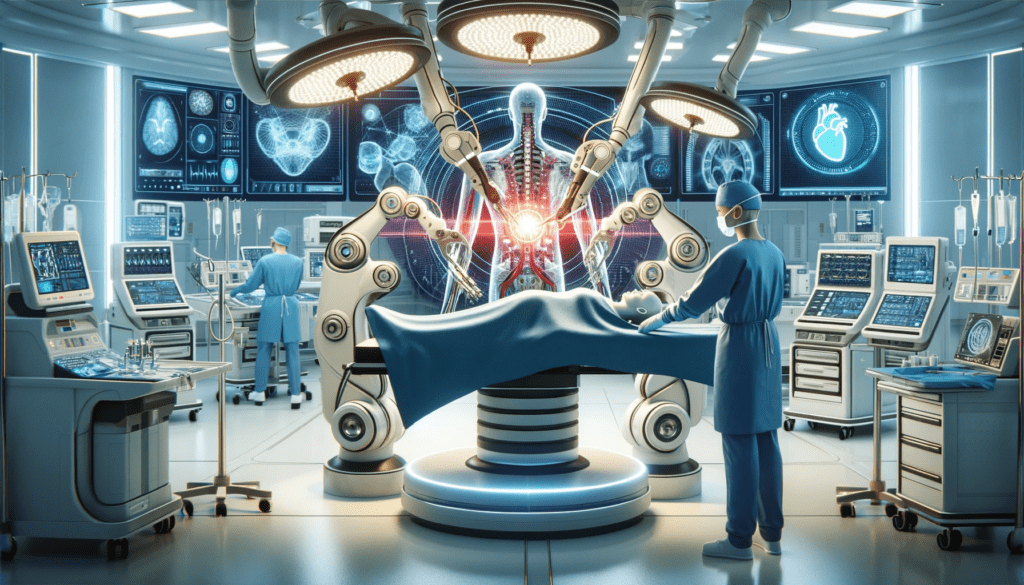In the ever-evolving landscape of healthcare, the presence of artificial intelligence (AI) has become increasingly pervasive. AI has penetrated various facets of the medical field, from diagnostic assistance to personalized treatment recommendations, and even administrative tasks. With each passing day, AI’s capabilities expand, raising a pivotal question that resonates across the medical community and society at large: Will AI ultimately replace human doctors in the future?
This question is not merely speculative; it delves into the heart of a rapidly changing healthcare landscape. The integration of AI into medical practice has already yielded remarkable advancements, prompting us to explore the current state of AI in healthcare, its role in diagnosis and treatment, and the essential human elements that cannot be replicated by machines. Moreover, we must navigate the challenges and ethical considerations surrounding AI in medicine, all while envisioning the symbiotic relationship between AI and human doctors that will define the future of healthcare.

The Current State of AI in Healthcare
At the heart of this question lies the current state of AI in healthcare. The integration of AI into medical practice has led to significant advancements. AI-driven algorithms can analyze vast amounts of medical data, offering speed and precision in diagnosing diseases and conditions. In radiology, AI has demonstrated the ability to detect anomalies in medical images, sometimes even outperforming human radiologists. Administrative tasks, such as medical billing and scheduling, are also streamlined through AI, allowing healthcare professionals to focus on patient care.
AI has proven invaluable in sifting through medical literature, swiftly identifying relevant research for evidence-based medicine. Furthermore, AI-driven chatbots and virtual assistants have made healthcare more accessible, providing information and answering questions around the clock.
The Role of AI in Medical Diagnosis
One of the most promising areas of AI in healthcare is medical diagnosis. Machine learning algorithms can analyze medical images, such as X-rays, MRIs, and CT scans, with remarkable accuracy. In some cases, AI has exhibited superior diagnostic abilities when compared to human doctors.
For instance, AI systems have shown exceptional promise in detecting conditions like diabetic retinopathy, lung cancer, and breast cancer. AI algorithms can swiftly identify subtle patterns and anomalies that might escape the human eye, potentially leading to earlier diagnoses and improved patient outcomes. This capacity for precision is a testament to AI’s potential to revolutionize healthcare.
AI in Treatment Recommendations and Personalized Medicine
AI extends its reach into treatment recommendations and the realm of personalized medicine. By analyzing patient data, genetic information, and medical histories, AI can suggest tailored treatment plans. This has the potential to optimize therapies, minimize side effects, and enhance patient outcomes.
Drug discovery, a time-consuming and expensive process, has also benefited from AI. Machine learning models can identify potential drug candidates and predict their efficacy, potentially speeding up the development of new medications. Additionally, AI can assist in matching patients to clinical trials, ensuring that more individuals have access to cutting-edge treatments.
The Human Element in Medicine
While AI’s capabilities in diagnostics and treatment recommendations are impressive, there are intrinsic human elements in medicine that AI cannot replace. Empathy, the ability to establish rapport with patients, and the capacity to consider the holistic well-being of individuals are quintessentially human qualities that define medical practice.
Complex medical cases often demand nuanced judgment, considering not only clinical data but also a patient’s unique circumstances, values, and preferences. Moreover, human doctors provide emotional support and reassurance, offering solace to patients in their times of distress. These aspects of care remain irreplaceable.
Challenges and Ethical Considerations
The integration of AI in healthcare is not without its challenges and ethical considerations. Data privacy is a paramount concern, as AI relies on vast datasets that must be protected. Bias in AI algorithms, stemming from biased training data, can lead to disparities in healthcare outcomes. Transparency and interpretability of AI decisions are essential for building trust between patients and AI systems.
Moreover, the potential for job displacement in the medical workforce is a contentious issue. While AI can augment medical practice, concerns about the erosion of jobs within the healthcare sector persist. Striking a balance between technological advancement and safeguarding human livelihoods is a delicate task.

The Future of Healthcare with AI
The future of healthcare undoubtedly involves AI, but it does not signify the replacement of human doctors. Instead, it represents a symbiotic relationship where AI augments the capabilities of healthcare professionals. AI can swiftly analyze data, provide recommendations, and assist in routine tasks, allowing doctors to focus on complex cases, patient interactions, and ethical decision-making.
Continuous education and training for healthcare professionals will be vital to ensure that they are adept at utilizing AI tools effectively. Ethical guidelines and regulations will play a pivotal role in shaping responsible AI integration in medicine, safeguarding patient interests.
In conclusion, AI’s role in healthcare is transformative, offering unprecedented advancements in diagnosis, treatment, and accessibility. However, the essence of human touch and judgment in medicine remains irreplaceable. The future of healthcare is not a world where AI replaces doctors, but one where AI empowers them, providing tools to deliver more precise, accessible, and efficient care. The coexistence of AI and human doctors is the path forward, promising a brighter future for healthcare.
